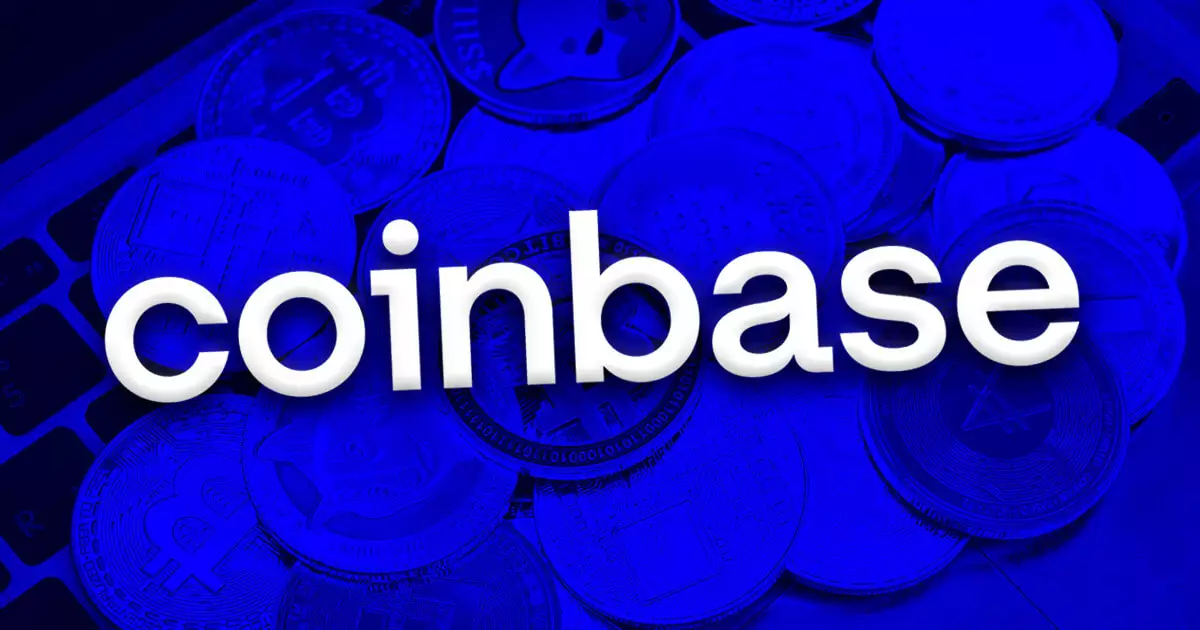The cryptocurrency landscape is rife with rapid changes and contentious legal battles, one of the most striking being Coinbase’s recent decision to delist wrapped Bitcoin (WBTC). This nuanced situation not only involves the strategic maneuvers of one of the largest cryptocurrency exchanges but also opens a window into the regulatory challenges present in a still-nascent market. With BiT Global accusing Coinbase of unfair practices, this case exemplifies the ongoing tensions between market players in the burgeoning digital asset realm.
Coinbase’s Defense: The Case for Delisting WBTC
At the heart of Coinbase’s rationale for delisting WBTC lies a lengthy internal assessment, underscoring the exchange’s attempts to mitigate risks associated with the digital asset. The involvement of Justin Sun, the controversial founder of TRON, looms large in this decision, as Coinbase’s chief legal officer, Paul Grewal, elucidated in court filings. Sun’s history of alleged misconduct in the blockchain space, including accusations of fraud and market manipulation, has stirred significant concern within Coinbase regarding the integrity and transparency of WBTC’s reserves.
Grewal’s characterization of BiT’s lawsuit as “bogus” signals a firm stance that emphasizes both the exchange’s commitment to its user base and adherence to self-imposed regulatory standards. By outlining the specifics of their internal review process, Coinbase positions itself as a protector of customer trust, asserting that maintaining platform integrity is paramount in their operations. This move exemplifies how established players in the crypto arena are navigating a landscape fraught with potential pitfalls stemming from associated reputations.
Despite Coinbase’s assertions of due diligence, BiT Global contends that the delisting is a strategic maneuver designed to bolster Coinbase’s competing product, cbBTC. The lawsuit alleges that this action is not only unfair but detrimental to the broader crypto market and its participants. BiT argues that by sidelining WBTC, Coinbase sends a signal of diminished trustworthiness to consumers, potentially eroding confidence in the digital asset and creating unnecessary barriers to its access on a major trading platform.
At its core, BiT’s claims rest on the premise of California’s Unfair Competition Law, asserting that Coinbase’s decision undermines equitable competition within the crypto ecosystem. This legal framing illuminates a critical aspect of the crypto market: the balance between healthy competition and the integrity of individual assets. As BiT underscores potential reputational harm, they compel the court to consider the broader implications of Coinbase’s action on consumer trust and market dynamics.
Impact on the Crypto Landscape: Trust and Transparency
The unfolding legal battle brings to light prevalent themes of trust and transparency, which are essential in fostering a robust digital asset marketplace. Coinbase’s concerns about WBTC’s reserves underline a pressing issue that resonates across the crypto world—assurances about the backing and inherent value of tokens are crucial. As regulations start to take root, the industry’s response to transparency can set the stage for how similar disputes are viewed in the future.
Conversely, BiT Global’s emphasis on consumer access highlights a fundamental tension within the cryptocurrency ecosystem. While exchanges like Coinbase are entrusted with safeguarding the integrity of the market, the means by which they do so—such as delisting certain cryptocurrencies—can profoundly affect user choice and market accessibility. As the case develops, it will serve as a pivotal reference point for how legal interpretations and regulatory actions intersect in this rapidly evolving sector.
Looking forward, the outcome of this legal confrontation has the potential to set significant precedents within the cryptocurrency sphere. With a hearing for BiT’s request for a temporary restraining order scheduled, the looming decision represents more than mere legal wrangling. It encapsulates the struggles and challenges inherent in a market still defining its boundaries amid regulatory scrutiny and evolving consumer expectations.
As both firms prepare their arguments, industry stakeholders—from individual investors to large institutional players—will be watching closely. This case underlines the importance of clarity and due diligence within the crypto market, and the implications of the court’s ruling could reverberate throughout the community, affecting everything from market dynamics to future regulatory frameworks. Ultimately, this dispute between Coinbase and BiT Global reflects deeper considerations of ethics, trust, and integrity in the ever-changing world of digital currencies.

